How to best instruct your students in Fire Emblem: Three Houses
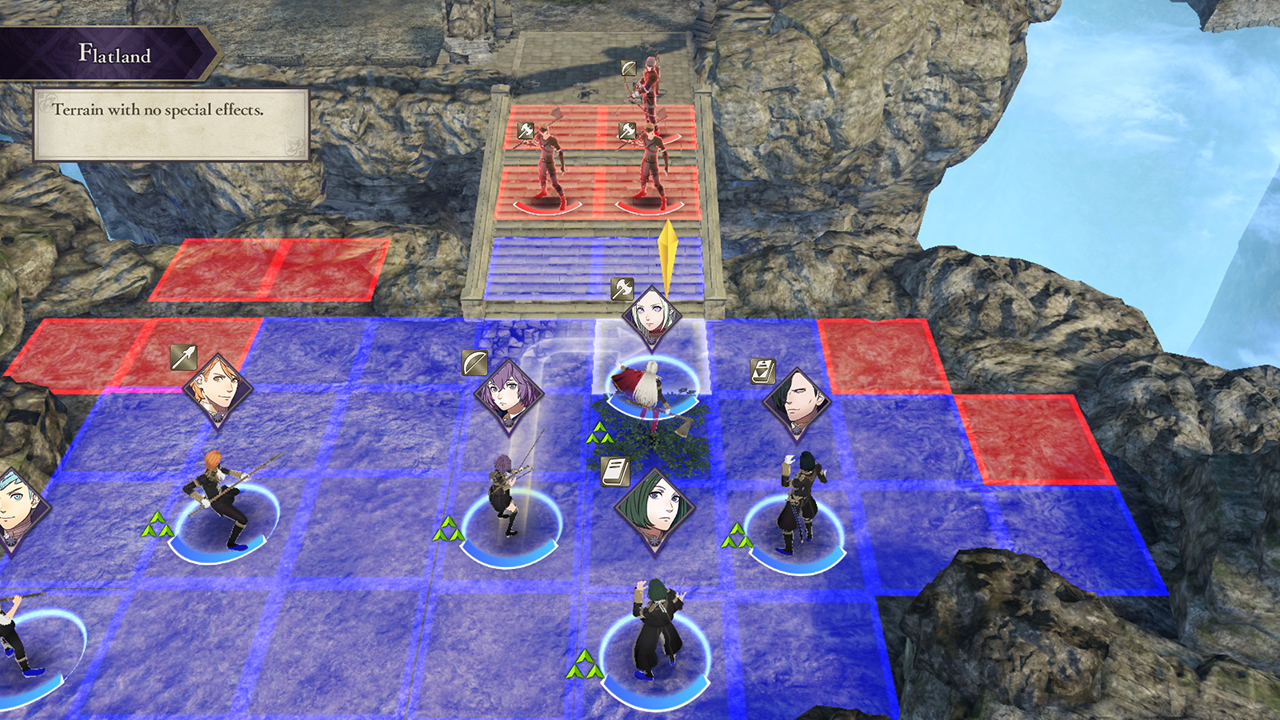
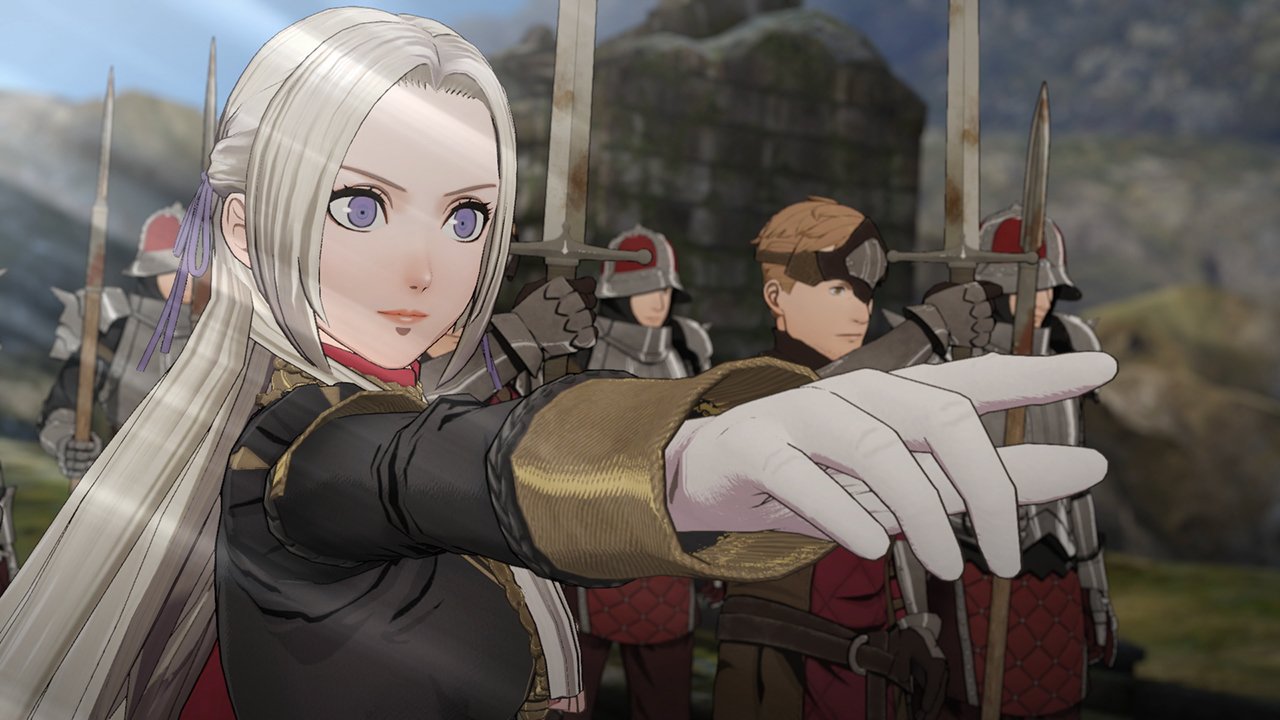
Fire Emblem: Three Houses puts you in the shoes of a professor instructing a group of young noblemen and women who will one day go on to lead their respective houses. You want to ensure they understand the nuances of combat and strategy, while honing their innate talents. But there are so many different classes and skills, how do you know who to teach what subject to?
When you reach the lecture days in Fire Emblem: Three Houses, here's a guide to instructing your students in the most efficient way possible:
Products used in this guide
- Eagle or Lion or Deer?: Fire Emblem: Three Houses ($60 at Amazon)
How to best instruct your students in Fire Emblem: Three Houses
- On an Instruction Day, select "Instruct Manually" always
- For each student, decide what Beginner, Intermediate, Advanced, and Master Class you want them to eventually become
- Press "ZR" to view Classes and see what skills they need to train to reach those goals
- Under "Goals," make sure the skills the student needs to get to the classes you want them to become are selected
- Once everyone's Goals are set, begin instruction
- Only instruct students with maximum motivation
- Instruct students in the same skills they have set as goals
- Feel free to change goals whenever a student reaches the minimum they need for a class
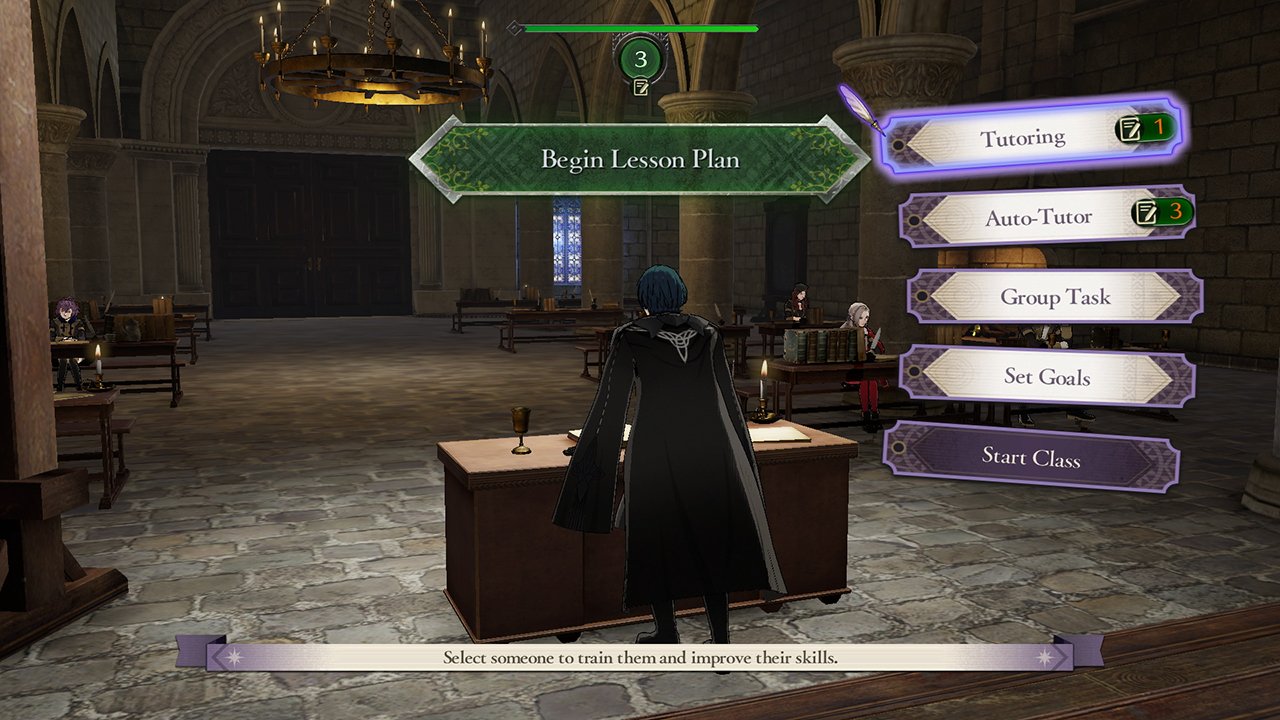
Manually or Automatically?
Every day you lecture, you have the option to instruct your students either manually, or automatically. You should always choose to instruct manually. Automatic will instruct students based on the goals they have set, which is fine, but it misses out on opportunities to build extra motivation, discover hidden talents, and focus on students who need extra help.
With manual instruction, you'll be able to instruct a certain amount of students based on your Professor level, and the amount of instruction you can give them in a session is based on their current motivation. You'll be able to play around with Goals, Group Activities, and even pursue hidden talents. It doesn't take too long to instruct manually, and if you're playing a 60+ hour video game you're probably not in too much of a hurry, so always go manual instruction, every time.
Pick your classes early!
One of the best things you can do to most effectively instruct your students is to decide early on which Advanced and/or Master-level classes you want your units to eventually reach. You can view all possible classes (minus a few secret ones) by pressing the ZR button from the instruction screen.
Here is how classes work. Every character starts either as a Noble or a Commoner, and can then advance into Beginner, Intermediate, Advanced, and Master Classes at levels 5, 10, 20, and 30 respectively. As one of the requirements to get to a new class is to have the character's skills at certain levels, you'll want to make sure you're working on those as you level them up.
Every character automatically has skills they will grow faster (marked with a blue arrow when instructing them) or slower (red arrow), and thus is innately better suited to certain classes. The best way to instruct students is to look ahead at the Advanced and Master classes, and decide what you ultimately want each student to become, then note the skills they will need, and start working on those early. For almost every class, there will be a natural flow from Beginner to Intermediate to Advanced classes. For example, a Soldier needs Lance skills, Cavalier requires Lance and Riding, and Paladin also wants Lance and Riding, making that a natural progression for a character to take. So you'd want to pick a character to train Lance and Riding. And if that character also excels in either Faith or Reason, they can become a Dark Knight or a Holy Knight at later levels.
Master your iPhone in minutes
iMore offers spot-on advice and guidance from our team of experts, with decades of Apple device experience to lean on. Learn more with iMore!
It's worth taking a few minutes with a notepad and pencil early on to plan the way you want your character to grow, so you don't waste precious instruction time on skills they won't use.
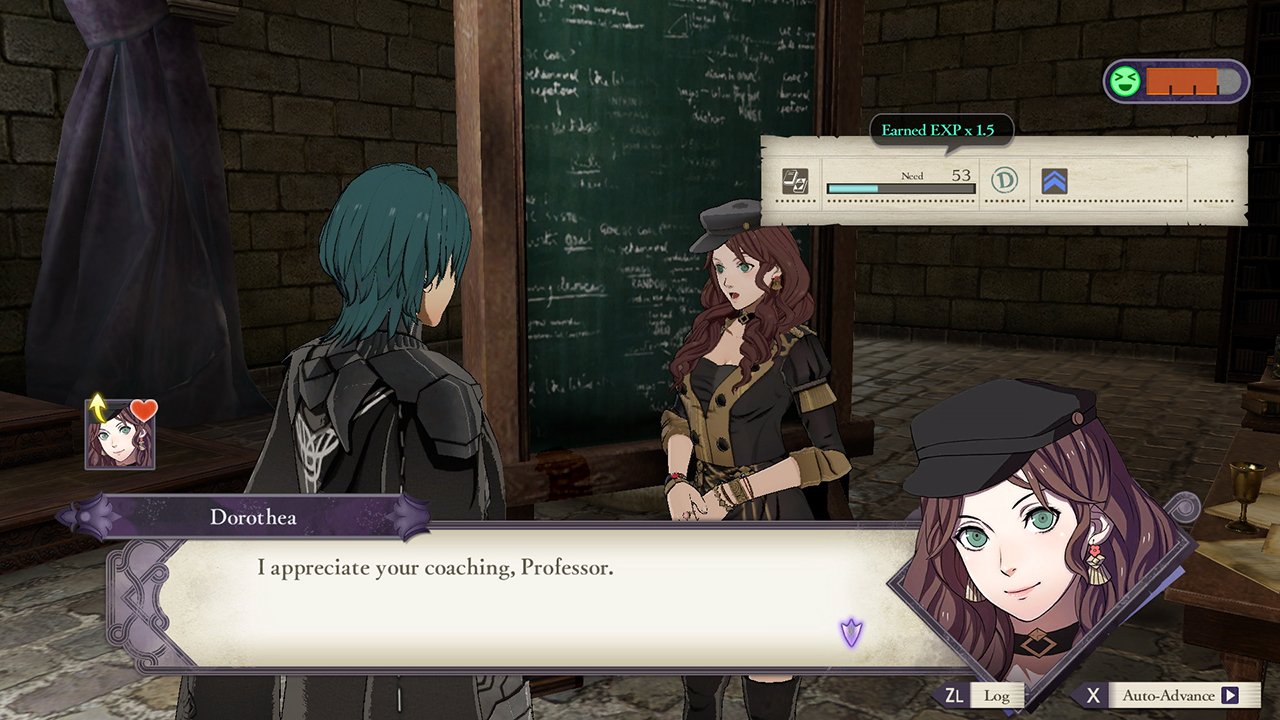
Hidden talents
When looking at a character's skills to instruct, you may notice some with three empty stars on the far right. These are "hidden talents" which the character is poor at initially, but with enough instruction (specifically, twelve "instruct" commands, does not work with Goals or using in battle), they can turn those into "budding talents," which gives them a boost instead of a weakness. It's good to take these into account early on when planning your classes out, as a unit who appears to be poor at Reason could actually be very good at it with some instruction, and thus have even more potential paths open to them. Don't feel you have to pursue these if you don't want to, just know that the option is there.
Setting and reaching goals
Characters gain skills via instruction and by using them in battle, but also each week will gain a significant boost to up to two skills (or an even bigger boost to just one) that you set in the "Goal" section of the Instruction menu. Just like above, use the plan you've made for a character to reach an Advanced or Master class to determine which skills you want your unit to focus on. You can change these any time you instruct, so once a character reaches the level you need them to be at in a certain Skill, you can always swap and make them work on another.
Group activities
There are three total Group Activities, which give two characters a small boost to either Flying, Riding, or Heavy Armor as well as strengthening their bond with one another. This boost isn't massively significant and goes more slowly for characters without a strong bond with each other, or who don't have an aptitude for the skill you've chosen. However, as Riding, Heavy Armor, and Flying are a bit tougher to boost on units that aren't already riding, wearing heavy armor, or flying, this is a good way to push those skills to units who may otherwise struggle with them. For instance, if you want Dedue to use his Heavy Armor and Axe affinities to be a Great Knight, you'll have to work a long time to get him to excel at Riding, and this is one way to do it.
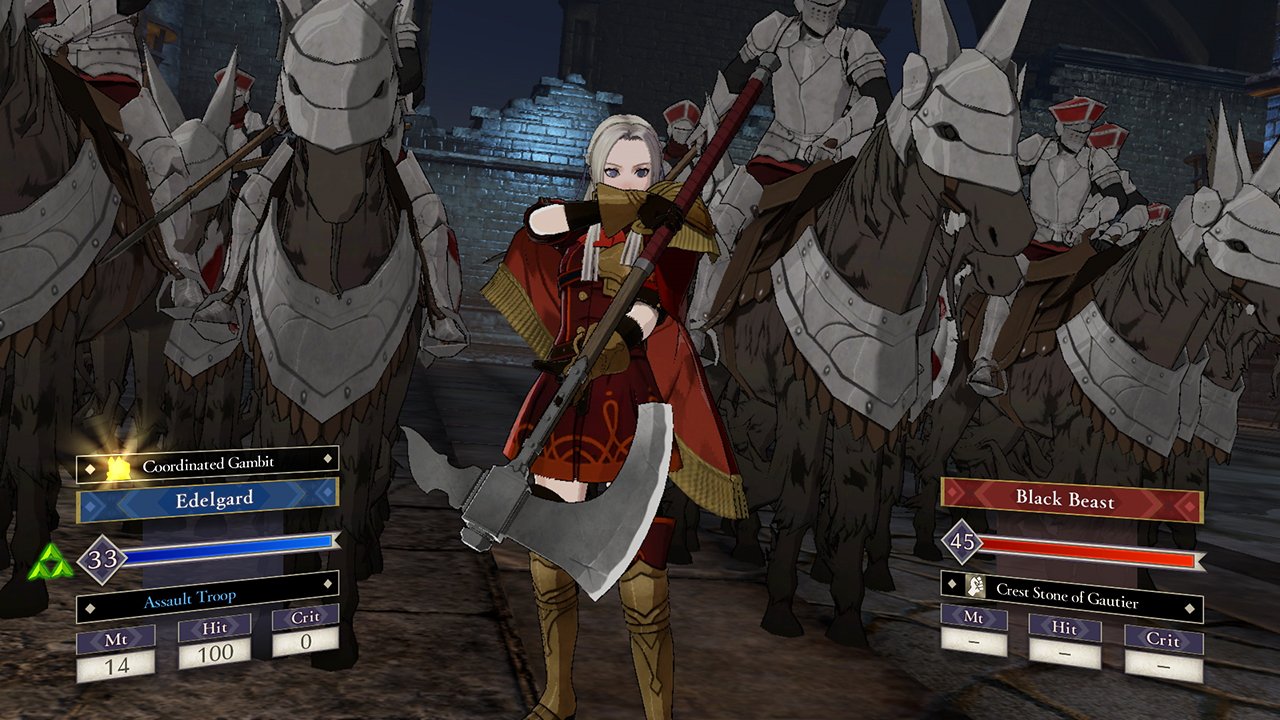
Who do I instruct?
Whenever possible, you should always instruct students with the highest possible motivation -- 100 motivation, and a green "laughing" emote next to their name. The reason for this is that you spend one "point" every time you start instructing a student, but you can only instruct them to the maximum of their motivation. So a student with only 25 motivation can be instructed once, and a student with 100 can be instructed up to four times in a session (or five, if you get a "Perfect" and praise them!), but both cost the same amount of instruction points.
Use your days Exploring to get as many students' motivation up as possible, so you can instruct whoever you want when the time comes!
Accessories for hours of Fire Emblem
Fire Emblem: Three Houses is a long game! To make sure you're playing both comfortably and efficiently, here are some suggestions for accessories that are great not just for Fire Emblem, but for other Switch games, too.

Nintendo Switch Pro Controller ($62 at Amazon)
Not just for 'pros'
The Nintendo Switch Pro controller is a must-have for anyone who feels even a touch uncomfortable with the Joy-Cons for long gaming sessions. It's the shape of a standard controller and has the same layout and features as two Joy-Cons paired together.

Official Switch Deluxe Travel Case ($20 at Amazon)
Keep it safe
Fire Emblem: Three Houses is a great game for long trips, but you need to keep your Switch protected and your tiny Switch cartridges from getting lost. The official travel case has space to store the Switch itself, multiple physical games, and a pouch for accessories like extra Joy-Cons or a stylus.

amFilm Tempered Glass Screen Protector ($8 at Amazon)
Playing in handheld mode? Keep the screen on the Nintendo Switch from getting scratched or smudged with screen protectors. This set includes two for a reasonable low cost.

